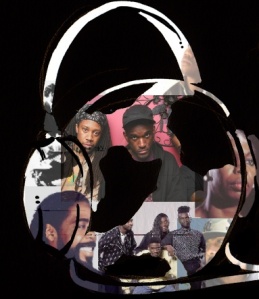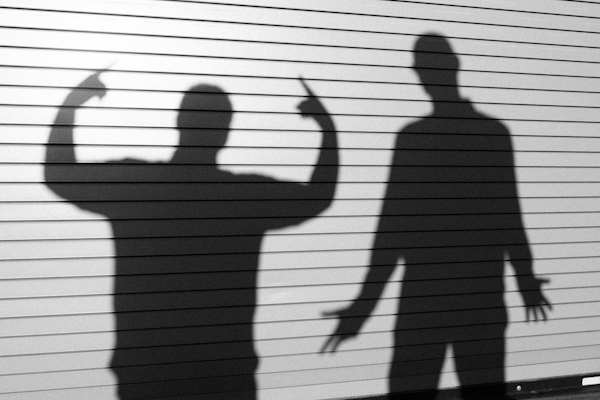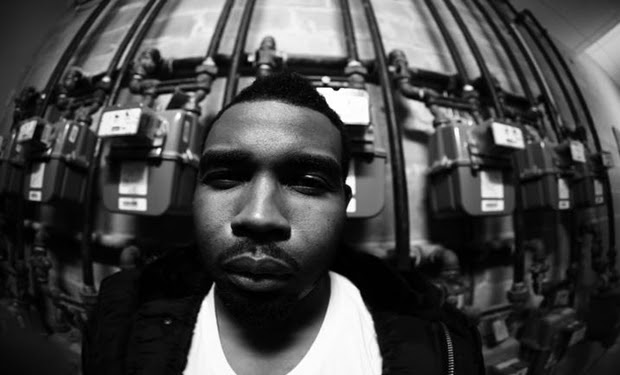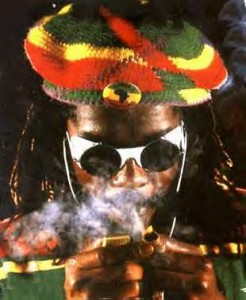
By shelz.
The ruling triumvirate of reggae, Bob Marley, Bunny Livingston and Peter Tosh were never known for playing it lyrically safe. Their tales of oppression, official malfeasance, and revolution set the serious lyrical tone of the genre they are credited with creating. Of the three however, Peter Tosh was the most contentious. His heavy handed musical diatribes left critics feeling more lectured than entertained at times. His penchant for long, flowing preacher-like robes late in his career didn’t help either. However, motivation comes in many forms. Sometimes you are more effective in communicating with a shout than a whisper. And shout he did.
His message of truth, justice and the Rastafari way was born of a rough-and-tumble life; an existence that exposed him to most of the ills he preached against. The tenacity of his delivery was strengthened by the voices of those he spoke for; an army of ignored and disenfranchised whose issues were finally expressed through Tosh’s music.
Tosh’s career began with The Wailers, a band of poor Jamaican teens. Their look was clean cut and their sound was up-tempo ska. However, as the group matured so did their music. Many of the members became involved in the Rastafari movement which led to shared interests in the politics and economics of the island. Their changing interests altered their music and the music changed the world’s view of Jamaica . No longer were the residents just the polite employees of the latest resort hot spot. They were the economically debilitated, locked into a system that Tosh would rail against even more after he parted ways with The Wailers.
His first solo release was Legalize It and it came complete with a marijuana scented sticker. The album was built around the spiritual, personal side of Tosh. “Igziabeher” references Tosh’s Rastafari beliefs. “Why Must I Cry” is an exploration of broken hearts and depression. He even threw in a light-hearted dance tune and a cautionary tale about being a fast woman. But the undercurrent of his discontent with government was visible as well on songs like “Burial” and “What’cha Gonna Do.” Both songs discuss unfair treatment of the poor.
His anti-oppression lyricism stood front and center on his next release, Equal Rights. The album’s first track is “Get Up, Stand Up,” an empowerment anthem that insisted even in a religious construct there is nothing wrong with fighting your personal tyrant. There was also “Downpresser Man,” a song of hopefulness that the days of the evil doers are coming to an end. Tosh sings of unity in the African Diaspora, rails against apartheid, and chastises blacks for their empathetic behavior. It was a musical manifesto for those he spoke for, proselytizing for those on the outside looking in, and an affront to the targets of his songs.
During The One Love Concert in Jamaica, which was organized to bring peace to the war torn island, Tosh took the stage and chastised two rival party leaders in attendance about their refusal to legalize marijuana. Later that evening, he was picked up by the police who allegedly beat him until they cracked his skull. Tosh always believed the beating was a direct result of his speaking out against those in control in Jamaica . However, it was not enough to deter him from continuing his crusade against the system or “shitstem” as he preferred to call it.
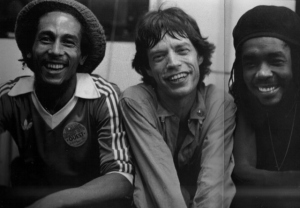
His next three albums, Bush Doctor, Mystic Man and Wanted Dread and Alive were all recorded for the Rolling Stones’ self-named label and garnered mixed reviews primarily due to Tosh attempting to round his musical edges with an influx of horns and female back up singers. His words were even more militant and effectual but the topic range was nothing new.
The track “Dem Ha Fe Get a Beating” from Bush Doctor, led to a united Rasta voting block for Prime Minister Michael Manley’s election. “Rumors of War” and “Fight On” from Mystic Man again addressed South Africa and the possibility of an ethnic majority rule in that country. “Rastafari Is” from Wanted Dread and Alive gives listeners yet another sermon on following the way of Jah.
Tosh broke some entertaining ground during this time by creating his own vocabulary from slick flips of existing words, giving the likes of E-40 a blue-print for urban slang. But even in this seemingly light hearted creativity, there was a militant message. Managers became damagers. Politics morphed to politricks and technology turned into tricknology. But it was this somber presentation pervading the entirety of his work that prevented Tosh from achieving the fame Marley did.
Tosh released one more album, Mama Africa, and then went into self-imposed exile. After four years of traveling through Africa and consulting traditional medicine men for guidance on everything from health to breaking label contracts, he re-emerged with a new album, No Nuclear War. The release was critically acclaimed, garnering Tosh a Grammy for Best Reggae Performance, but it would prove to be his last offering. Sadly, months after the release of this album, Peter Tosh was murdered by a friend whose life he was attempting to help repair.
The Tosh legacy is that of one for all. His music was his vehicle to uplift and educate; not only the residents of Jamaica , but the world. The irony of his death at the hands of someone he wished to incorporate into his movement simply proved that what he preached needed to be heard, whether the critics liked it or not
Celebrate Black Music Month 2009 With Planet Ill
Follow Us on Twitter @ http://twitter.com/planetill
Follow shelz. on Twitter @ http://twitter.com/shelzp
Join Us on the Planet Ill Facebook Group for more discussion

